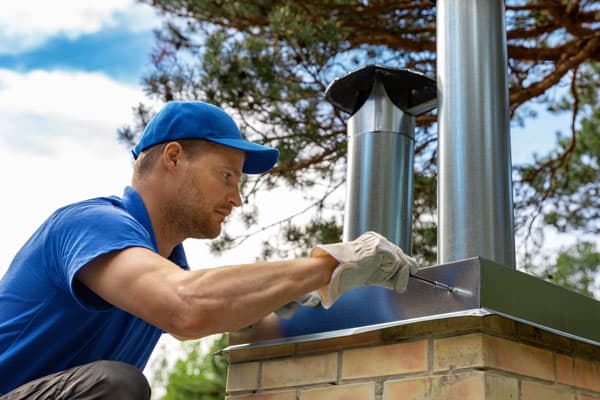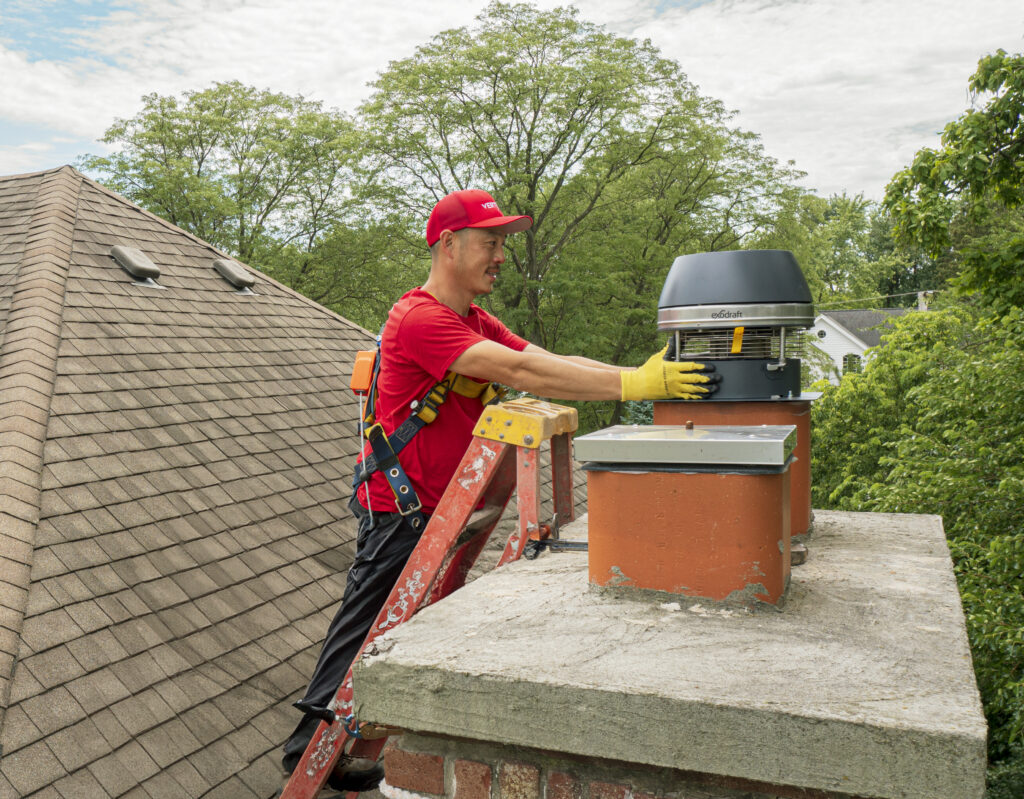
When Do I Need My Furnace/Water Heater Appliance Chimney Cleaned?
When homeowners think of getting their chimneys cleaned, they imagine their fireplace chimney because it’s the one directly used most often and the thought of the winter’s many fires still burn in the forefront of their minds. There’s another chimney you should be thinking about cleaning: your furnace or water heater appliance. It’s just as essential as your fireplace chimney because after all, any chimney that expels toxic fumes is crucial and should be upkept.
Manually Detecting Obstructions
Venting any fuel for any appliance should be taken seriously. There are steps you can take yourself to check for clogs, ensuring that the chimney of your water heater or furnace is functioning correctly. For a hot water heater, an obstruction can allow heat to bellow out of the bottom of its smoke pipe. You can investigate as to whether or not there is a clog by placing your hand over this area. If it feels unusually hot, you should contact a professional right away. Furnaces can suffer clogs, too, and you should check for them occasionally. Like your water heater, it’s never good when your furnaces is churning out excessive heat. To check for obstructions within your furnace, place your hand over the front of the burner section. Similar to your water heater, if a clog is present, you should feel an unusual amount of heat. While newer furnaces are equipped with safety mechanisms that auto-shutoff the furnace should this occur, not all of us are blessed with them. Older furnaces lack this essential feature, and should a blockage occur, their chimneys can form a buildup of fatal gases like carbon monoxide. Carbon monoxide is a colorless, odorless gas. If it goes undetected, the consequences can be deadly. The older your heater or furnace is, the more cautious you should be about potential carbon monoxide leaks. Without the modern shut-off feature, you might not realize if this dangerous gas is putting you or your family at risk.Blockage Prevention: What You Can Do
While you’ll need a professional to clean out your furnace or water heater chimney during an inspection, there are things you can do as a homeowner to prevent blockages. Chimney Caps: You can protect your furnace by installing a chimney cap. The screen keeps out birds and small animals, stopping them from building nests inside the chimney. The cap keeps wildlife safe and your home safe. You’ll also keep out debris like sticks or leaves, which can create blockages in the furnace’s flue pipes. Ground Inspection: It’s always a good idea to check up on your chimneys because they’re responsible for expelling toxic fumes from your home. It’s an easy task to add to your to-do list. From the ground, do a visual inspection of your chimney, specifically checking to see if your chimney caps are intact. Chimney caps are susceptible to rotting from too much elemental exposure, and sometimes can be blown off from strong gusts of wind. Mortar: Checking the mortar joints if you have a masonry furnace chimney can be helpful in maintaining the structural integrity. Water vapor is a byproduct of natural gas and has the ability to soak masonry within the chimney’s interior. The motor can become damaged from prolonged exposure because the water vapor is mixed with other toxic combustion byproducts like acids. Carbon Monoxide Monitor: There’s a reason why carbon monoxide alarms exist—to save lives from a gas we can’t see or smell. Adding a carbon monoxide monitor will put your mind to ease in case there is an undetected leak. Even if you have a newer furnace or water heater with the auto-shutoff, having a monitor will act as a backup fail-safe in case the built-in detection fails. You can never be too cautious when it comes to the byproducts of combustion. Touch Test: You don’t have to wait for the furnace or water heater to start acting up to manually check the appliance for blockages. Test your appliance every now and again to make sure there isn’t any excess heat spilling out. If it feels abnormally hot against your hand, then it’s there’s likely a blockage. Call a professional immediately if that is the case.
Ground Inspection: It’s always a good idea to check up on your chimneys because they’re responsible for expelling toxic fumes from your home. It’s an easy task to add to your to-do list. From the ground, do a visual inspection of your chimney, specifically checking to see if your chimney caps are intact. Chimney caps are susceptible to rotting from too much elemental exposure, and sometimes can be blown off from strong gusts of wind. Mortar: Checking the mortar joints if you have a masonry furnace chimney can be helpful in maintaining the structural integrity. Water vapor is a byproduct of natural gas and has the ability to soak masonry within the chimney’s interior. The motor can become damaged from prolonged exposure because the water vapor is mixed with other toxic combustion byproducts like acids. Carbon Monoxide Monitor: There’s a reason why carbon monoxide alarms exist—to save lives from a gas we can’t see or smell. Adding a carbon monoxide monitor will put your mind to ease in case there is an undetected leak. Even if you have a newer furnace or water heater with the auto-shutoff, having a monitor will act as a backup fail-safe in case the built-in detection fails. You can never be too cautious when it comes to the byproducts of combustion. Touch Test: You don’t have to wait for the furnace or water heater to start acting up to manually check the appliance for blockages. Test your appliance every now and again to make sure there isn’t any excess heat spilling out. If it feels abnormally hot against your hand, then it’s there’s likely a blockage. Call a professional immediately if that is the case.